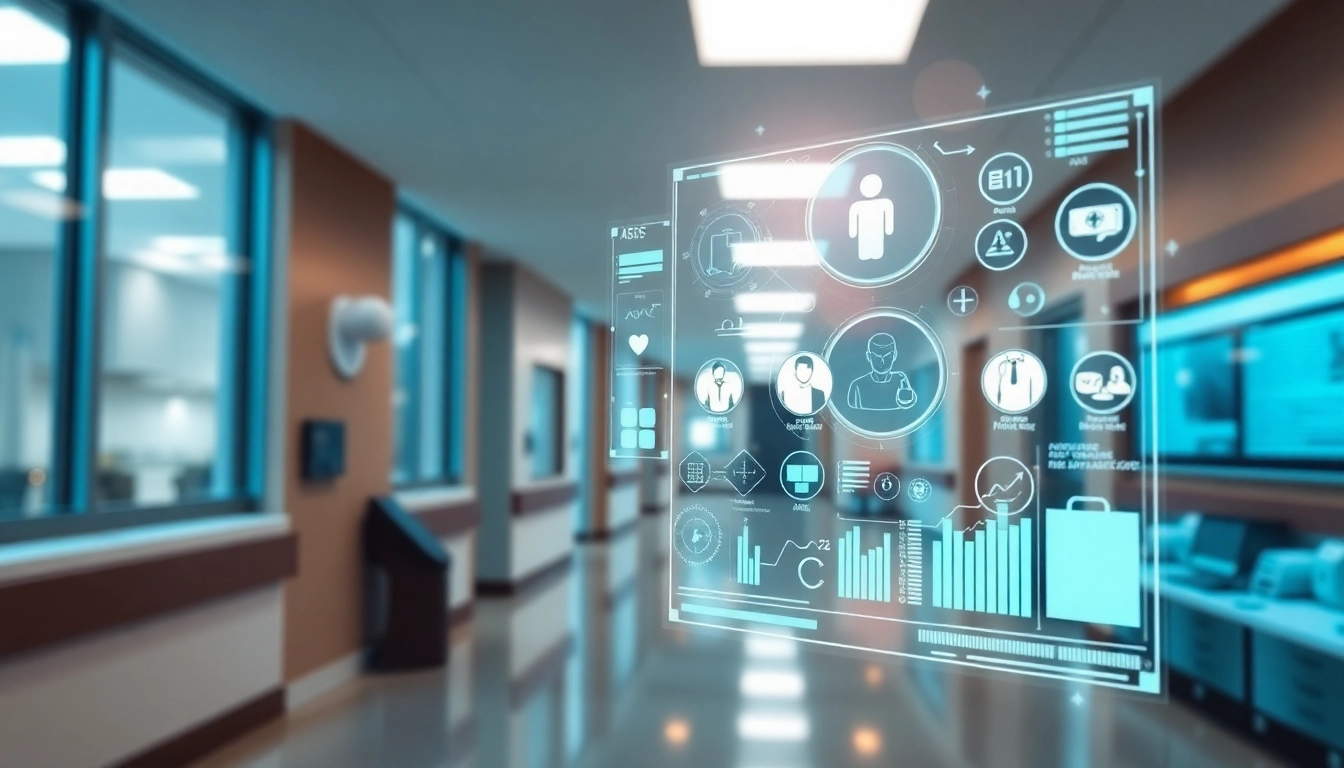Understanding Informatics in Healthcare
In the rapidly evolving landscape of healthcare, www.informaticsview.com serves as a profound resource for understanding the intricate interplay between data, technology, and healthcare practices. As we delve into the realm of informatics, we explore its definition, significance, and the transformative impact it has on modern medical practices.
The Definition and Importance of Informatics
Informatics can be defined as the science of using data, information, and knowledge to improve human health and the delivery of healthcare services. It encompasses a wide range of disciplines, merging the fields of computer science, information science, and healthcare to optimize patient care. By converting raw data into actionable insights, informatics enhances the efficiency of healthcare systems, ultimately leading to improved patient outcomes and satisfaction.
Key Roles of Health Informatics Professionals
Health informatics professionals play crucial roles across various healthcare settings. They are responsible for the design, implementation, and management of health information systems. Some key roles include:
- Clinical Informaticians: They leverage technology to enhance clinical workflow and decision-making processes, ensuring that healthcare providers have access to accurate and timely patient information.
- Health Information Managers: These professionals oversee the integrity of patient records and ensure compliance with data privacy regulations.
- Data Analysts: Their role involves analyzing healthcare data to identify trends, support clinical research, and inform policy-making.
Current Trends in Health Informatics
The field of health informatics is continually evolving, driven by technological advancements and changing healthcare needs. Some current trends include:
- Artificial Intelligence and Machine Learning: These technologies are being increasingly integrated into healthcare applications to improve diagnosis, patient care, and operational efficiencies.
- Interoperability: The push for systems that can share and utilize health information seamlessly is reshaping healthcare, enabling better coordination of care.
- Patient-Centered Care: Informatics tools that empower patients with their health data and allow active participation in their healthcare decisions are gaining prominence.
Applications of Informatics in Modern Medicine
Electronic Health Records and Patient Management
One of the most significant applications of informatics in healthcare is the implementation of Electronic Health Records (EHRs). EHRs digitize patient information, allowing for better management and analysis of health data. The advantages of EHRs include:
- Improved accessibility of patient records for healthcare providers, regardless of location.
- Facilitated communication among multidisciplinary teams, enhancing collaborative care.
- Streamlined reporting for regulatory compliance and quality assurance.
Furthermore, EHRs contribute to more effective patient management strategies by providing reminders for preventive care and tracking compliance with treatment plans.
Telemedicine: Enhancing Patient Access
Telemedicine has revolutionized healthcare delivery by allowing patients to consult with healthcare professionals through virtual platforms. This application of informatics not only increases access to care but also addresses challenges such as:
- Geographical barriers preventing patients from receiving timely care.
- Increased convenience for patients, leading to higher rates of appointment attendance.
- Reduction in healthcare costs associated with travel and waiting times.
The integration of telemedicine into health systems serves as a testament to how informatics can enhance patient access to essential services.
Data Analytics for Improved Healthcare Delivery
Health informatics employs data analytics to glean insights from vast amounts of health data. By utilizing data mining techniques and predictive analytics, healthcare organizations can:
- Identify at-risk populations and tailor interventions accordingly.
- Analyze treatment outcomes to continually improve patient care practices.
- Enhance operational efficiencies by optimizing resource allocation based on data-driven forecasts.
These analytics not only bolster healthcare decision-making but also provide practitioners with the tools necessary for proactive patient management.
Challenges Faced in Health Informatics
Data Privacy and Security Concerns
As healthcare becomes increasingly digitized, data privacy and security emerge as critical challenges in health informatics. The sensitivity of personal health information demands robust security measures to prevent data breaches and unauthorized access. Key strategies include:
- Implementing encryption protocols for data storage and transmission.
- Conducting regular security audits and risk assessments.
- Ensuring compliance with regulations such as HIPAA and GDPR to protect patient information.
Integration of Technologies and Systems
With the proliferation of various health technologies, a significant challenge lies in achieving interoperability among systems. Lack of integration can lead to fragmented care delivery, which may compromise patient outcomes. To address this issue, organizations should:
- Adopt standardized data formats and protocols to facilitate communication between diverse systems.
- Engage stakeholders early in the technology integration process to ensure compatibility and user buy-in.
- Invest in comprehensive training programs that equip staff to utilize integrated technology solutions efficiently.
Training and Education Requirements
As technology evolves, so too must the skillset of health informatics professionals. Ongoing education and training are paramount for keeping pace with advancements. Challenges in this area may be alleviated by:
- Creating a culture of continuous learning within healthcare organizations.
- Offering tailored training programs that address specific technological needs and emerging trends.
- Collaborating with educational institutions to align curricula with the demands of the industry.
Best Practices for Implementing Informatics Solutions
Steps for Effective Technology Adoption
To successfully implement informatics solutions, organizations should follow these best practices:
- Conduct a needs assessment: Evaluate organizational needs and select technology that aligns with strategic goals.
- Involve key stakeholders: Engage different levels of staff in the planning and implementation processes to ensure acceptance and address potential resistance.
- Provide comprehensive training: Offer hands-on training sessions to ensure users are proficient and confident in utilizing new systems.
Engaging Staff in Change Management
Change management is a crucial component of technology implementation. To foster acceptance, organizations can:
- Communicate the benefits of the new system clearly, emphasizing how it improves efficiency and enhances patient care.
- Encourage feedback from staff throughout the transition process to identify challenges and areas for improvement.
- Recognize and reward staff who adapt to and champion the new technologies.
Measuring Success and Performance
Implementing informatics solutions must be followed by measurable outcomes to assess efficacy. Organizations should:
- Establish key performance indicators (KPIs) to evaluate the impact of technology on workflow and patient outcomes.
- Conduct regular audits to ensure compliance with established standards and identify areas for further improvement.
- Utilize feedback mechanisms, such as surveys and user interviews, to collect data on staff and patient experiences.
Future of Health Informatics
Emerging Technologies and Innovations
The future of health informatics is set to be unrestricted by its current frameworks, with numerous emerging technologies poised to further revolutionize healthcare. Innovative trends to watch include:
- Blockchain for secure data sharing and integrity management.
- Wearable technology that provides real-time health monitoring and personalized healthcare data.
- Virtual reality (VR) and augmented reality (AR) being leveraged for surgical training and patient education.
Impact of Artificial Intelligence on Health Informatics
AI is transforming health informatics by enabling sophisticated data analysis and automation of routine tasks. Its application can lead to:
- Enhanced diagnostic accuracy through machine learning algorithms that identify patterns in imaging and lab results.
- Automated patient triage systems that efficiently route individuals to the appropriate care settings.
- Predictive analytics tools that forecast patient outcomes and resource utilization.
Preparing for Future Challenges in Healthcare
As healthcare continues to progress, the challenges will evolve. Healthcare organizations must prepare for:
- Increased complexity in data management due to growing volumes of health data generated through various sources.
- Continued need for compliance with stringent privacy regulations in an era of digital health transformation.
- Adapting to shifts in patient expectations for personalized, convenient healthcare options.
By proactively addressing these challenges, healthcare providers can remain competitive and effective in delivering high-quality care.



